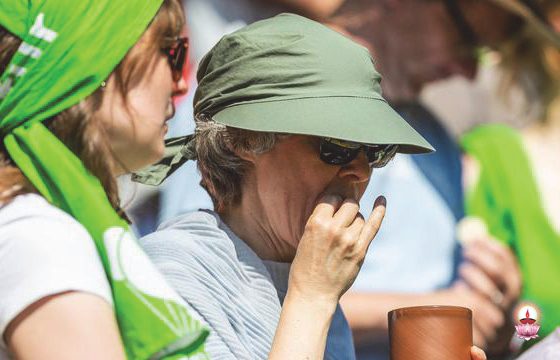Azadi ka Amrit Mahotsav Kolkata event honours four Clergymen
Pope Francis asks businesses to support working women: They’re ‘afraid to get pregnant’
Study: Christianity may lose majority, plurality status in U.S. by 2070
Indian politician declines Magsaysay Award under party pressure
Like John Paul II, Pope Francis heads to Kazakhstan during time of war

In his latest salvo to challenge Rome’s authority, the president of Germany’s bishops’ conference has said that any German Protestant who wishes to receive Holy Communion in a Catholic Church on Öku-menischen Kirchentag — a day of Christian unity in May — may do so.
“Anyone who is Protestant and attends Communion can receive Communion,” Bp Georg Bätzing told an online discussion in Frankfurt on April 22 about the May 15 event that usually brings thousands of Christians to the city for ecclesial events.
“We want to take steps towards unity,” he said, adding that “whoever believes in conscience what is celebrated in the other denomination will also be able to approach [the altar] and won’t be rejected.”
According to the German bishops’ news site Katholisch.de, the bishop of Limburg went on to say that the practice “has been maintained up and down the country” and is actually “nothing new.” Perhaps what is new is that it is being discussed, he continued, adding that he does not expect “an objection from Rome.”
He noted the existence of Vatican reservations about the Church in Germany, saying: “For many officials in Rome, the German Catholic Church has a Protestant smell.” He claimed this is “not the case at the highest level of prefects,” but with officials who have no experience with the Church in Germany.
Bishop Bätzing went on to note “fear” in Rome about the Synodal Path in Germany, and the challenge of preserving unity, but added: “You can also endanger unity by nurturing it with instruments that are unsuitable for the time and world in which we live with its cultural diversity.”
Pope Francis, he added, has repeatedly said that “the Church cannot be controlled centrally” and that decentralized decisions have to be made within the framework of Catholic doctrine and canon law. “This is the way that we’re trying,” Bishop Bätzing said.
The bishop was alluding to a passage in the Pope’s 2013 apostolic exhortation Evangelii Gaudium in which the Pope wrote that the Second Vatican Council called for a “concrete realization of the collegial spirit,” and that he regretted that this desire “has not been fully realized, since a juridical status of episcopal conferences which would see them as subjects of specific attributions, including genuine doctrinal authority, has not yet been sufficiently elaborated.”
Leave a Comment